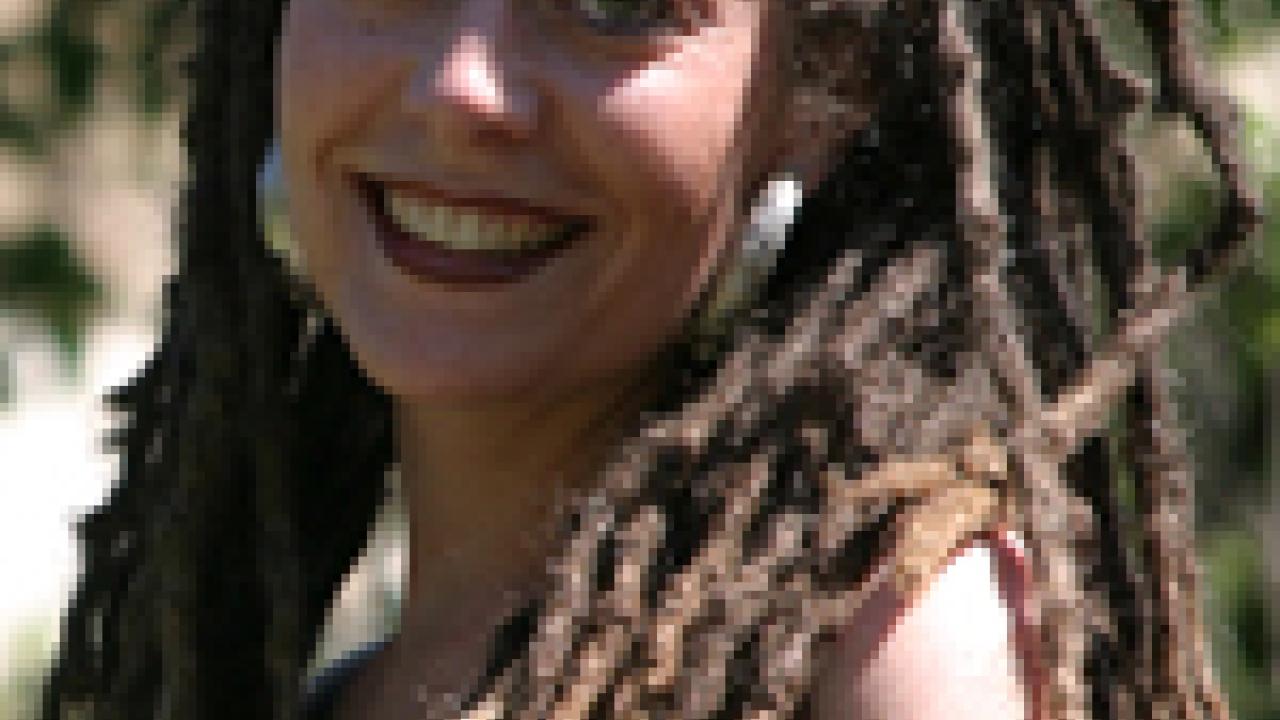Vajra Watson knows about the challenges of college, being the first in her family to graduate from an institution of higher education.
Now she wants to return her knowledge to the community. She is a believer in the power of learning.
Watson is the director of the Education Partnership Consortium, a new position in the UC Davis School of Education whose goal is to help UC Davis educate local youth in surrounding communities.
In particular, she is passionate about ensuring that young people have sufficient resources to thrive in their studies. She maintains that the education of young people is becoming increasingly important at a time when access to higher education is more difficult.
Community role of UC Davis
Watson taught at Berkeley High School, her own high school, for two years and she also ran a youth center in Berkeley. Her new challenge is to work with underprivileged or underperforming youth in the Sacramento area.
“Part of the consortium is really trying to understand better what UC Davis is doing in the community, and really trying to synthesize our efforts,” she said. “The other piece is to study how to help underperforming students and underperforming schools.”
Dateline recently discussed with Watson some of the changes she would like to see:
What is the most effective way to reach young students?
The first thing is listening. To listen is the most obvious missing piece in a lot of work. Teachers and educators don’t even know how to listen to young people and students in general. Listening can make everything culturally relevant in the classroom. It allows teachers to understand the homes and communities of the students they are teaching.
The second thing I would say is to remain consistent with high expectations. You have to give students the tools to successfully navigate their lives.
Third, if we can reach young people we can teach them. Having a relationship that sustains something where learning becomes reciprocal. It is important to connect learning to the cultures of students, social change and social justice. This way education has a purpose, we want to do education differently for a reason.
What one aspect of education reform would you like to see in practice?
I would pay teachers more, and I would change the whole conception of what it means to be a teacher. I think schools can be transformed with good teachers — sometimes we really get lost in what makes a good teacher.
Teaching is at the heart of the school system, and I don’t think teachers are respected in that way. I would put teachers in the center with love and support. Teachers can make lives or break lives, and we really have to be careful about how we teach young people.
Are you optimistic about the future of education in light of the economy and affordability issues?
I look at how hip-hop came to be. I am part of the hip-hop culture, and I studied it at Harvard.
In the Bronx in New York when community centers were shut down, kids took their parents’ old records and turntables and made art. Knowing the history about how young people continued to create their lives in a positive way, I continue to remain optimistic.
If you believe it, you can achieve it.
Do you have a philosophy of education or way of understanding it?
I would say “education for liberation, not education for incarceration.” I say incarceration in the sense of the prison piece, but also, it is very dangerous to educate for the status quo to just continue.
We will educate to change the world in specific ways. For example, we could educate to end world hunger but we don’t.
What was your favorite subject in grade school?
Definitely history. I loved history. When I was really young, in elementary school, I struggled, I had reading problems, and in junior high I was not really good in school either until I started to have better teachers.
I thought history was the bomb. I could devour it. I was fascinated by what had happened in the past.
Read any good books lately?
Yes — the books are A Democratic Classroom by Steven Wolk and Ain’t No Makin’ It by Jay Macleod.
Do you have a guilty pleasure?
I am obsessed with reality TV.
What do you like best about your job?
Partnership building and the way I have been able to include young people in conversations where they would normally have been left out.
The Sacramento Area Youth Speaks program includes some of the most amazing people in the nation. It has allowed me to work with a lot of different levels of the game. It has been an honor to work with them, and I have really gotten the best of both worlds.
(The Youth Speaks program came to UC Davis on May 15-16 to offer students the chance to participate in poetry slams, workshops and student-only town hall meetings. See sacareayouthspeaks.org.)
And least?
I don’t have enough time. I have two children of my own, and I feel like I am never around them.
Caitlin Cobb is a News Service intern.
Media Resources
Clifton B. Parker, Dateline, (530) 752-1932, cparker@ucdavis.edu
